Buried in the survey data is this: Confidence in the military was at 70% in 2018 but is now at 45% in 2021. Come to your own conclusions. Also, the majority of those under 30 think the military is too focused on warfighting (???). And the Pentagon caters to policies only favored by Democrats who aren’t interested in joining anyway.
From Military.com:
A slim majority of Americans would recommend their family and friends join the military even as their confidence in the military hovers at a low point, according to the latest defense survey from the Ronald Reagan Presidential Foundation and Institute.
This year’s survey found that 51% of respondents said they would encourage friends and family who were considering joining the military to do so, compared to 33% who said they would discourage their loved ones from joining.
At the same time, 46% of respondents said they have a “great deal” of trust and confidence in the military, sitting between last year’s result of 48% with great confidence and 2021’s all-time low of 45%.
The institute did not collect data that directly explains the slight divergence between those who would recommend military service and those who have great confidence in the military, but officials posited that one explanation could be found in the main reason people say they would encourage military service.
“You look at the number one reason on the encourage list, and it’s about patriotism, service and honor, and those are things that sort of might exist outside or those values might rise above any particular concerns around the current military or civilian leadership, which is clearly what’s driving the declining trend overall in institutional confidence,” Rachel Hoff, policy director at the Reagan Institute, said on a conference call with reporters.
Trust in the military has plummeted since the first iteration of the survey in 2018 when 70% said they had great confidence in the military, which in decades past had been seen as shielded from the public’s eroding trust in U.S. institutions. . . .
. . . . With its past surveys finding that perceptions about politicization of the military were driving the drop in confidence in the institution, the Reagan Institute this year asked why respondents would encourage or discourage their loved ones from joining the military. Amid the recruiting woes, military officials see “influencers” such as parents, teachers and coaches as a key target to reach to convince young people to enlist.
The results of the survey suggest the GOP political messaging on “wokeness” is resonating with Republicans, but that most people have other, more traditional concerns about military service.
The top two reasons Republicans said would lead them to discourage family and friends from joining were that the military is “too woke” and that they distrust political leadership. The survey found 19% of Republicans citing distrust in politicians and 18% citing woke social policies.
But overall, just 8% of respondents identified wokeness as their top concern and just 6% cited a distrust in leadership.
The top reason people said they would discourage loved ones from joining the military is that it’s “too dangerous,” with 21% saying so. The next reason, at 20%, was that they are anti-war. Both of those reasons were also the top concerns for Democrats, with 26% expressing concern about the danger and 22% saying they’re anti-war. . . . (read more on Military.com)
2023 REAGAN NATIONAL DEFENSE SURVEY
From their analysis:
Confidence and Politicization
Every year, the Reagan Institute asks about Americans’ level of trust and confidence in a variety of public institutions. In our first survey in 2018, 70% said they had a great deal of trust and confidence in the military—but that declined 7 points in 2019 and another 7 points in 2020, then falling 11 more points to a low of 45% in 2021.
That trend appears to have plateaued, with 46% now reporting a great deal of confidence in the military, consistent with last year’s number.
Previous Reagan Institute polling revealed the reason behind the decline in confidence as a growing perception of politicization of military leadership.
This year’s survey found that a plurality of Republicans (38%) think the military is too focused on social issues at the expense of a focus on warfighting, while almost half of Democrats (47%) think the military is appropriately balancing a focus on warfighting and social issues.
Nearly two-thirds of all Americans (63%) think it is inappropriate to block Senate confirmation votes on military nominees to protest Defense Department policies unrelated to warfighting, including 71% of Democrats and 58% of Republicans.
Recruitment
Inspiring a culture of service will be critical to overcoming the U.S. military’s recent recruitment challenges. There is not a significant partisan difference on whether someone would encourage or discourage a friend or family member from joining the military.
About half (51%)—including 49% of Democrats and 56% of Republicans—would encourage joining the military, while a third (33%)—including 36% of Democrats and 30% of Republicans—would discourage service.
The primary reason for those who would encourage service—among pluralities of both Democrats and Republicans—relates to patriotism, service, and honor.
However, partisans differ on their reasons for discouraging military service.
For Democrats, the primary reasons relate to it being too dangerous and not worth the risks or that they are anti-war.
For Republicans, the primary reasons are the current political climate and distrust of politicians or because they view the military as too “woke.”
(STARRS NOTE: Then why is the Pentagon aggressively pushing policies that only appeal to Democrats, even though Democrats don’t want to join the military? The Pentagon can’t do away with the dangers and risks to try to get Democrats to join nor can they do anything to appease someone who is anti-war. However, the Pentagon could get rid of all DEI/quotas/lowering standards and create a strong shield against political influence from the White House and remove liberal civilian policymakers in the Pentagon to help encourage recruitments of Republicans. In advertising, this is not selling to or knowing your best target audience who will buy a product. Go woke, go broke.)
Confidence in the Military
Overall confidence in the military has been stable since 2021, with 78% expressing confidence (and 46% expressing a “great deal of confidence”) in the military in our 2023 survey.
This overall confidence number exceeds those associated with police and law enforcement (64% confident), the Supreme Court (46%), the presidency (36%), the news media (33%), and that perennial whipping boy, Congress (26%).
But it is worth observing that this stabilization of trust in the military follows a substantial decline from 2018 to 2021: the percent saying they have a great deal of confidence dropped from 70% in 2018 to 63% in 2019 to 56% in early 2021 to 45% in late 2021, where it has since plateaued.
STARRS NOTE: Confidence in the military was at 70% in 2018 but is now at 45% in 2021. Who was the President in 2018 and then in 2021?
Confidence in the military varies by race (with Black and Hispanic respondents less trusting than Whites), and very slightly by partisanship (with independents less trusting than Democrats or Republicans).
Interestingly, the long-term decline in trust is greatest among Republicans, whose confidence has dropped 39 points, from 87% expressing a “great deal of confidence” in 2018 to 48% holding this opinion in 2023.
This shift among Democrats is only 12 points, from 59% to 47%.
The real driver appears to be age: only 30% of those under 30 years of age have a great deal of confidence in the military whereas 60% of those 65 and over hold this view.
Our 2022 survey explored the reasons for this increased disaffection with the U.S. military and found variation across the political spectrum.
Specifically, conservatives were concerned about a “woke” military, while liberals cheered military efforts at inclusivity and were concerned about far-right extremism in the ranks.
We leveraged these findings in our 2023 survey, asking whether the military has effectively balanced competing concerns:
23% say the military is too focused on social issues at the expense of warfighting.
• 24% say it is too focused on warfighting at the expense of social issues.
• 39% say it is appropriately balancing these.
This divide is driven by the expected partisan differences.
Republicans think the military is too focused on wokeness by a 21-point margin (38% too focused on social issues, 17% too focused on warfighting), while Democrats think it is the other way around by an identical 21-point margin (9%
too focused on social issues, 30% too focused on warfighting).
STARRS NOTE: The upside-down, split reality/dimension we live in where everything is the complete opposite.
Once again, though, young people stand out from all other groups: 40% of those under 30 years of age say the military is too focused on warfighting compared to 16% who say it is too focused on social issues.
STARRS NOTE: Those under 30 think the military is too focused on warfighting?? The whole purpose is warfighting–to win wars.
Black and Hispanic Americans think there is a focus on warfighting at the expense of social issues by 16 and 10 points, respectively.
White Americans feel the reverse, by a narrow 3-point margin.
Thinking again about the current Congress, one thing that unites respondents is the notion that it is inappropriate to hold up nominees for senior military positions as a means of protesting Defense Department policies unrelated to warfighting. Almost two-thirds (63%) say this is inappropriate, including majorities of Democrats, independents, and Republicans. Only about one-in-five (22%) say it is appropriate.
Of course, a big-picture concern is that more critical views of the military might affect recruitment and personnel. We explore this potentiality by asking whether respondents would encourage a family member of friend to join the military.
Half (51%) say they would, while 33% say they would not.
As might be expected, those who express a great deal of confidence in the military are the most likely to encourage people around them to join (66%), while those with little or no confidence are the least likely (21%).
Veteran households are relatively more likely to encourage service (56%), whereas younger people are relatively less likely (44%).
What are the top reasons for encouraging service?
- Patriotism and service to country top the list at 31%
- General support for the military (13%)
- The need for people in the military (12%)
- Career opportunities and skills (11%),
- Character building (10%)
- Positive personal connections with veterans (10%).
On the other side of the coin, the top reasons for discouraging service are
- Service is dangerous (21%)
- Anti-war sentiment (20%)
- Distrust of politicians and the current political climate (15%)
- The belief that it isn’t worth it (13%)
- Poor treatment of veterans (8%)
- The belief that the military is too woke (8%)
All told, about one-in-ten Americans under the age of 30 are extremely or very willing to serve in the U.S. military.
2023 REAGAN NATIONAL DEFENSE SURVEY
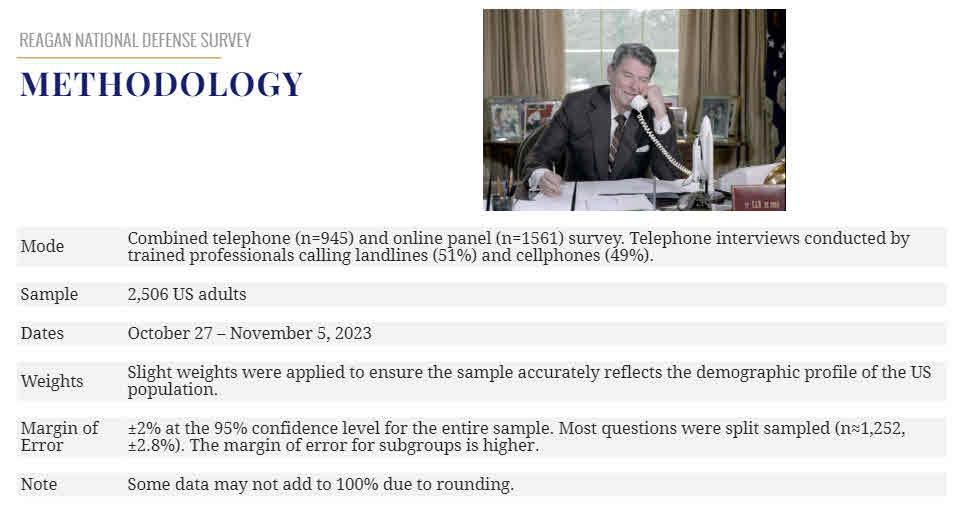

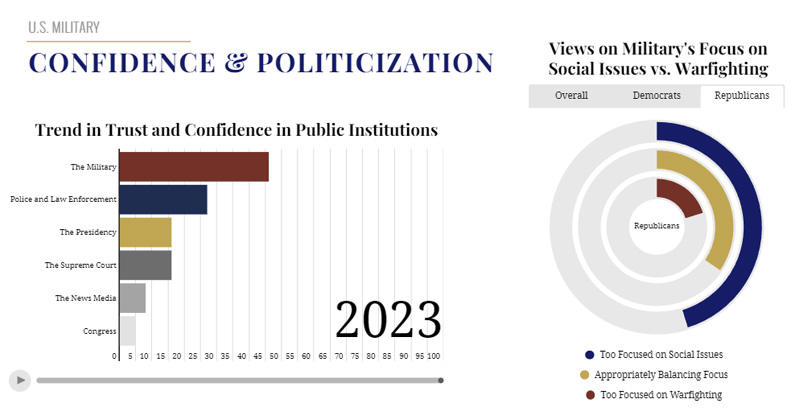
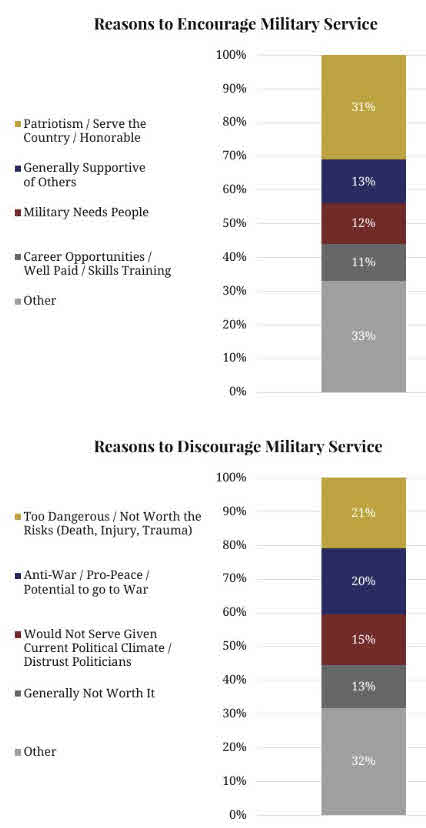


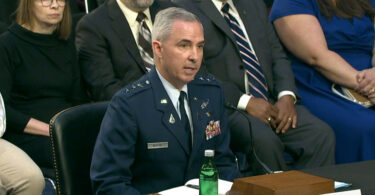
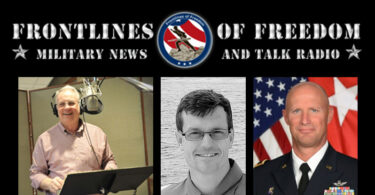
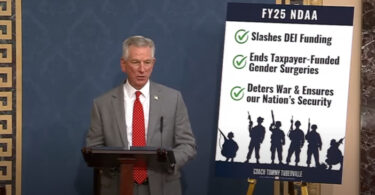
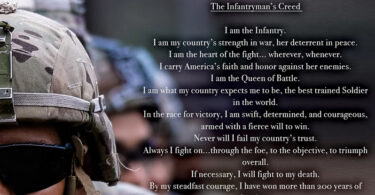
Leave a Comment